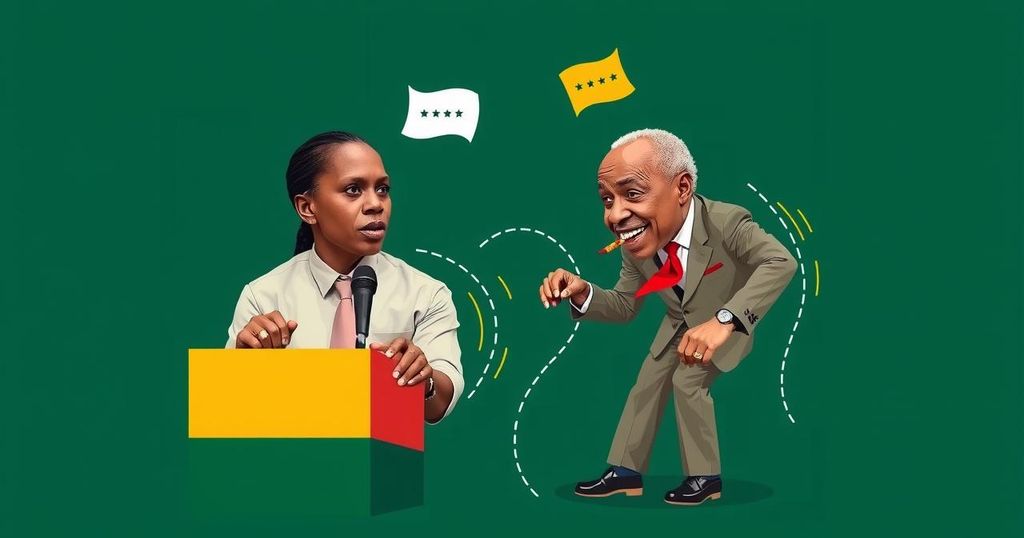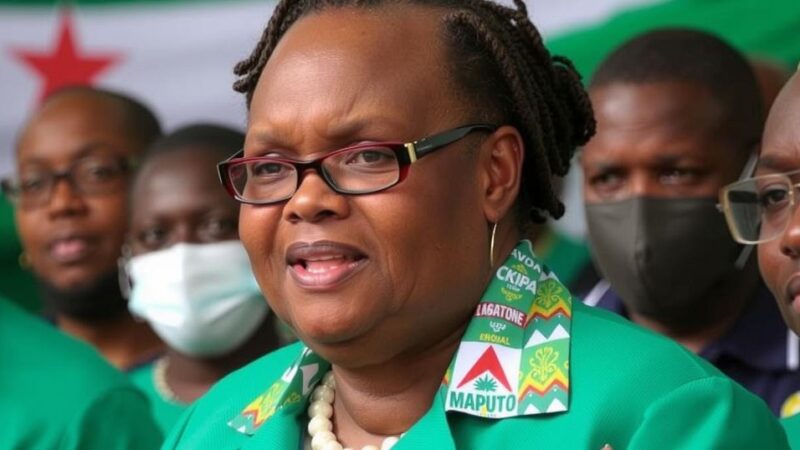Early election results in Botswana suggest a significant shift in political power as the ruling Botswana Democratic Party (BDP) is projected to lose its nearly sixty-year reign, with the opposing Umbrella for Democratic Change (UDC) leading by securing a majority of parliamentary seats. Voter discontent regarding unemployment and economic management catalyzed this transition. The current political dynamics indicate a pressing demand for reform and change in governance.
Botswana’s governing party, the Botswana Democratic Party (BDP), is facing unprecedented challenges as preliminary election results indicate a significant shift in political power. Under the leadership of President Mokgweetsi Masisi, the BDP has been at the helm since the country gained independence in 1966. However, early tallies, as reported on Friday, reveal that the BDP is losing its nearly six-decade dominance due to widespread voter dissatisfaction driven by issues such as unemployment and governmental mismanagement. According to the latest reports from counting centers, opposition parties collectively secured 31 of 61 parliamentary seats in the recent elections. The left-leaning Umbrella for Democratic Change (UDC), led by prominent human rights attorney Duma Boko, appears to be at the forefront with 19 seats, marking a significant victory against the BDP, which has secured only one seat thus far. The final official results are anticipated to be confirmed by the Independent Electoral Commission. With over one million registered voters in a population of 2.6 million, factors such as a staggering unemployment rate of 27% and economic downturns tied to declining diamond revenues have played pivotal roles in the electorate’s decision. Duma Boko, a Harvard alumnus, emphasized the pressing need for change, stating, “Change is here,” in a social media post celebrating his party’s strong performance. The UDC’s success in local council elections further highlights the shifting political landscape in Botswana.
The political climate in Botswana has been dominated by the BDP since independence, making the current electoral results significant for the future direction of the country. The BDP’s long-standing rule is being challenged as public frustration mounts over issues such as unemployment, corruption, and wealth inequality, issues which have become prominent during President Masisi’s tenure. As Botswana grapples with dependency on diamond exports, the incoming administration will be tasked with addressing these economic vulnerabilities while also responding to the electorate’s call for accountability and reform.
The preliminary election results indicate a potential end to the BDP’s lengthy governance in Botswana due to voter discontent regarding unemployment and mismanagement. With the UDC leading the opposition efforts, the elections reflect a growing desire for political change and a focus on economic diversification. The implications of these results could reshape Botswana’s political landscape and demand strategic reforms from the new government to stabilize the economy and address critical social issues.
Original Source: www.france24.com







